The Sole Practitioners Group was formed in 1992 as a direct result of adverse publicity given to sole practitioners and the legal press at the time resulting from the paper issued by The Law Society called “The Cost of Defaultâ€.
At the Law Society’s Annual General Meeting in July 1992, a founder member, Angela Deacon and a number of sole practitioners attended and complained of the way sole practitioners were being treated in view of the fact that The Law Society was supposed to be looking after the interests of all solicitors.
In “ The Cost of Default†consultative paper, a real emphasis was placed on the amount of money being paid from the compensation fund in respect of defaulting sole practitioners, but there was no publicity about a far greater sum being paid from the solicitors indemnity fund as a result of dishonesty of partners. No research had gone into these figures as to how much, in fact, had been paid out of the Law Society’s compensation fund relating to dishonest partners.
Even today, a significant concern of the compensation fund is in fact small firms as opposed to sole practitioners.
The Group was formed directly after the 1992 Law Society Annual General meeting, led by Mr Arnold Rosen who became the sole practitioner’s group first chairman. All sole practitioners were canvassed by way of a questionnaire.
In July 1994 the Sole Practitioners Group became a Law Society Group entitled to grant funding from the Law Society and the allocation of a permanent secretary and contact at The Law Society. Juliet Heasman was the first secretary and on her retirement in 2003 Stephanie Nunn took over those duties.
In 2002 following rearrangement of The Law Society’s governance, the Representation Board of the Law Society persuaded Council that the Group should no longer be part of The Law Society but should be distanced from them by the new status of a Recognised Group. From 2005 instead of sole practitioners being automatically members of the Group they had to opt in, and grant funding was only made available for core activities, for example training, communicating with members and responding to consultations. The name of the Group became Solicitor Sole Practitioners.
Having settled into this agreement, during this period the Group flourished developing its conferences and seminars and relationships with third parties such as government and MPs in its own right. It made representations warning against the dangers of the introduction of Alternative Business Structures.
It developed a relationship with individuals in the insurance broking industry which has held it in good stead, now treating those individuals in Lockton as its preferred brokers so that they, in return for this recommendation, ensure that they give tailor-made consideration to every sole practitioner who has a professional indemnity insurance issue and who asks the Group for assistance.
More recent developments in the history of the Group have been the fact that The Law Society in developing its new raison d’être following its effective loss of regulation, decided that the Society needed to relate more closely to small firms as a whole and invited the Sole Practitioners Group to become part of the in-house Small Firms Division of The Law Society. Given that this concept was untried and given the fact that the Group felt it was better able to serve its sole practitioner members by keeping its independence, and that it had sufficient income to do so, the Group is now independent of The Law Society. However having achieved this status, the Group and The Law Society through their respective Officers are in active dialogue to ensure that the two organisations cooperate as fully as possible where appropriate.
Since about 2002 in the expansion of the Council the Group have been able to nominate two Law Society Council Members and have continued to do so on the basis of representation of their members in spite of formal separation from the Society. This is a very important linkage with the main Law Society.
The Group has had an annual conference for many years and recently this has expanded and now invites SRA, Legal Ombudsman and Law Society representatives to speak to members. The conference is subsidised as much as possible to make it affordable. It has even achieved overseas conferences in Paris in 2013 and Prague in 2016.
The Group has two aims. The first is to represent the interests of its members to all appropriate bodies including The Law Society, SRA and Legal Ombudsman and others and to reply to consultations and ensure that decisions are not made without the views of sole practitioners and their interests being put forward as fully as possible.
The second is to support members through local groups, organising training and conferences and communicating through other means.
Finally the Group communicates with its members by email and through the Solo Journal and the website. The Group has recently carried out a consultation of its members as to their wishes and views and is acting upon that to develop its website and the services it provides to its members.

